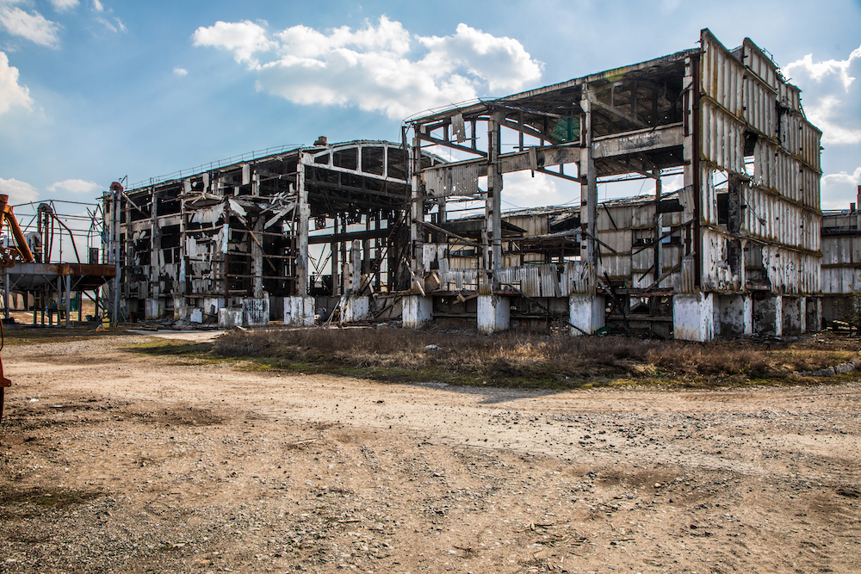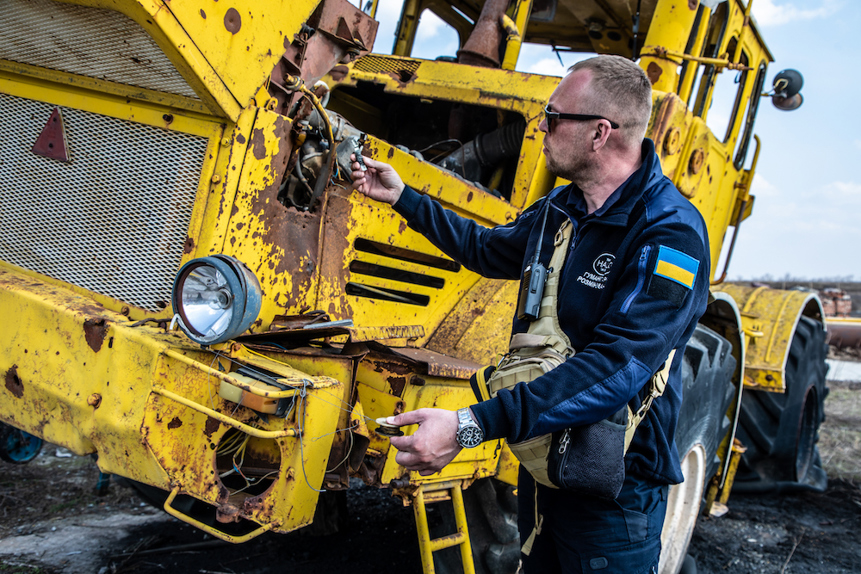Alexander Mikolaeovich is a landowner, director of an agricultural holding. He’s farmed here for over 40 years, renting land from 400 local people—an economic lifeline for the nearby village of Hrakove. The annual harvest was over 10 tonnes of wheat, barley and sunflowers, exported to global markets through the ports of Odessa and Mykolaiv.
But the tractors that should be sowing the fields are burnt-out shells. Millions of pounds worth of equipment—John Deere, New Holland tractors, sprayers, all burnt.

The grain store, which last year held 3,000 tons of wheat, is blown open to the sky.
The Russians occupied here from March to September. Everything has been destroyed and a lethal tide of mines and explosives left behind by the fighting.

On a bright yellow tractor, Alexander shows the remains of a tripwire rigged to a grenade. If the driver had started the engine, the vehicle would have exploded.

In the surrounding fields, amongst last years’ wheat, anti-tank mines can just be seen—the fuse peeping out of the ground. A deadly crop, almost invisible to the untrained eye. Each contains 8kg of explosives, easily detonated when a tractor, plough or harvester runs across them.
Alexander narrates a devasting list of the people blown up whilst trying to farm the land—the two brothers from Malinovka, people at a farm in Ivanovka, electricity workers trying to restore power.
Out of 2,000 hectares, he estimates 1,700 are contaminated. If they can’t sow the fields there are no crops to export and they cannot pay rent to the the local people who own parcels of the land he farms.
Across Ukraine the story is the same—land that could feed 80 million people around the world, including in countries suffering major food insecurity—is too dangerous to farm.
“If we could just sow 1,000 hectares we will be able to pay our shareholders, and these are people from the village of Hrakove. They are the poor who have suffered the most, and now they haven’t received rent for the second year running. Life in the village is built on this.”
In his yard stands a row of brand-new seeding machines. Ordered before the war began, they have just arrived from Italy. Now they sit here, unused. Smoke billows across from the fields—in desperation, some farmers have begun setting fire to the land to try and burn off the mines. A dangerous method that will leave many explosives behind.
“We need to start sowing in the next month. I’m asking, just begging you to come and help us. Help clear the mines. We’ll start working, grain will get to the ports. We’ll start paying rent and wages to people. Then we will begin to live.”
From Minefields to farmer's fields
HALO began working across the Kharkiv region in March this year to clear the mines and explosives from villages and farmland like Alexander’s. We have been investing in trialling machines and new technology to meet the urgent need to clear vast tracts of land safely and efficiently and deal with threats such as tripwires. Mechanical clearance could allows us to make land safe up to 100 times faster than demining manually— transforming minefields back to farmers’ fields.

